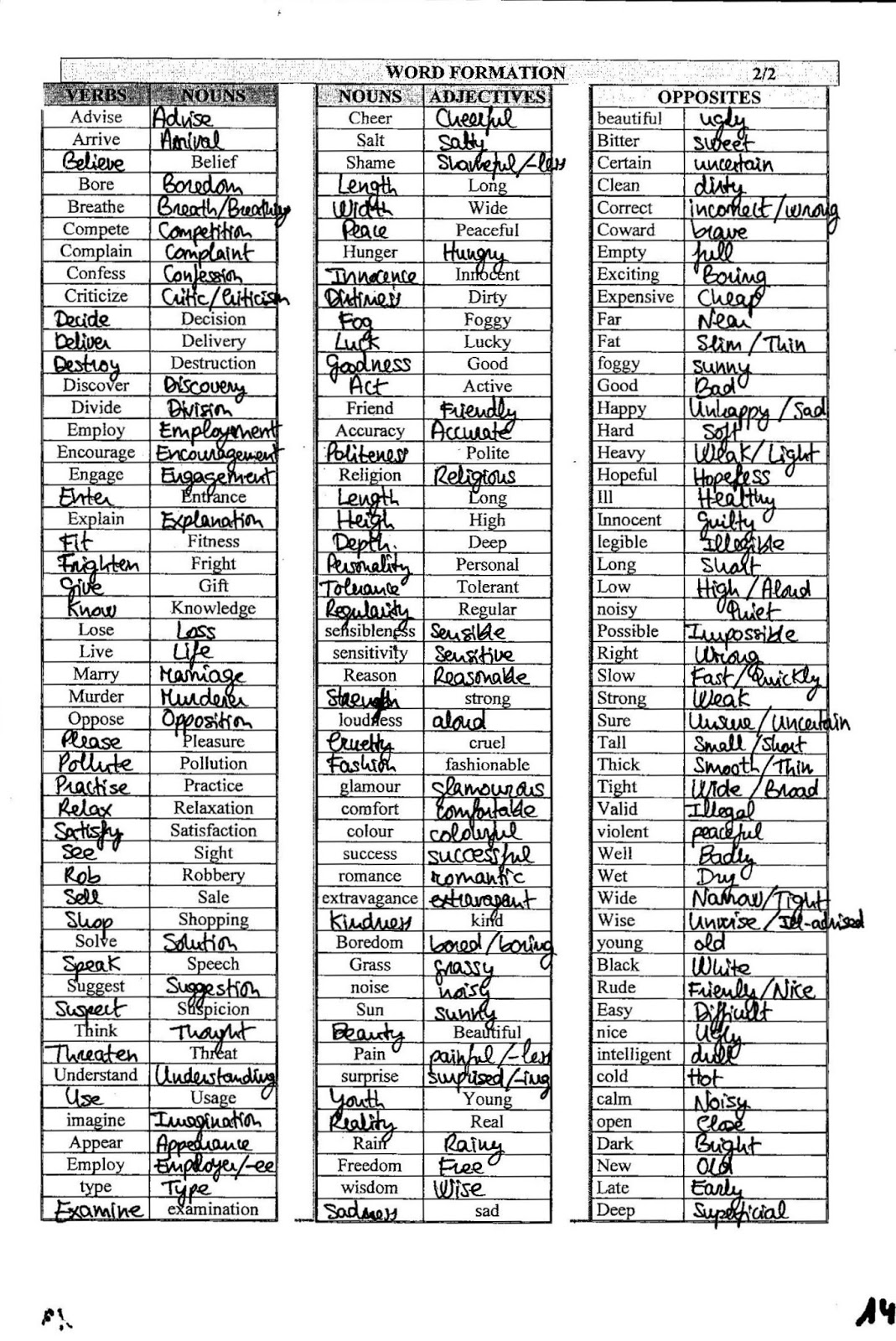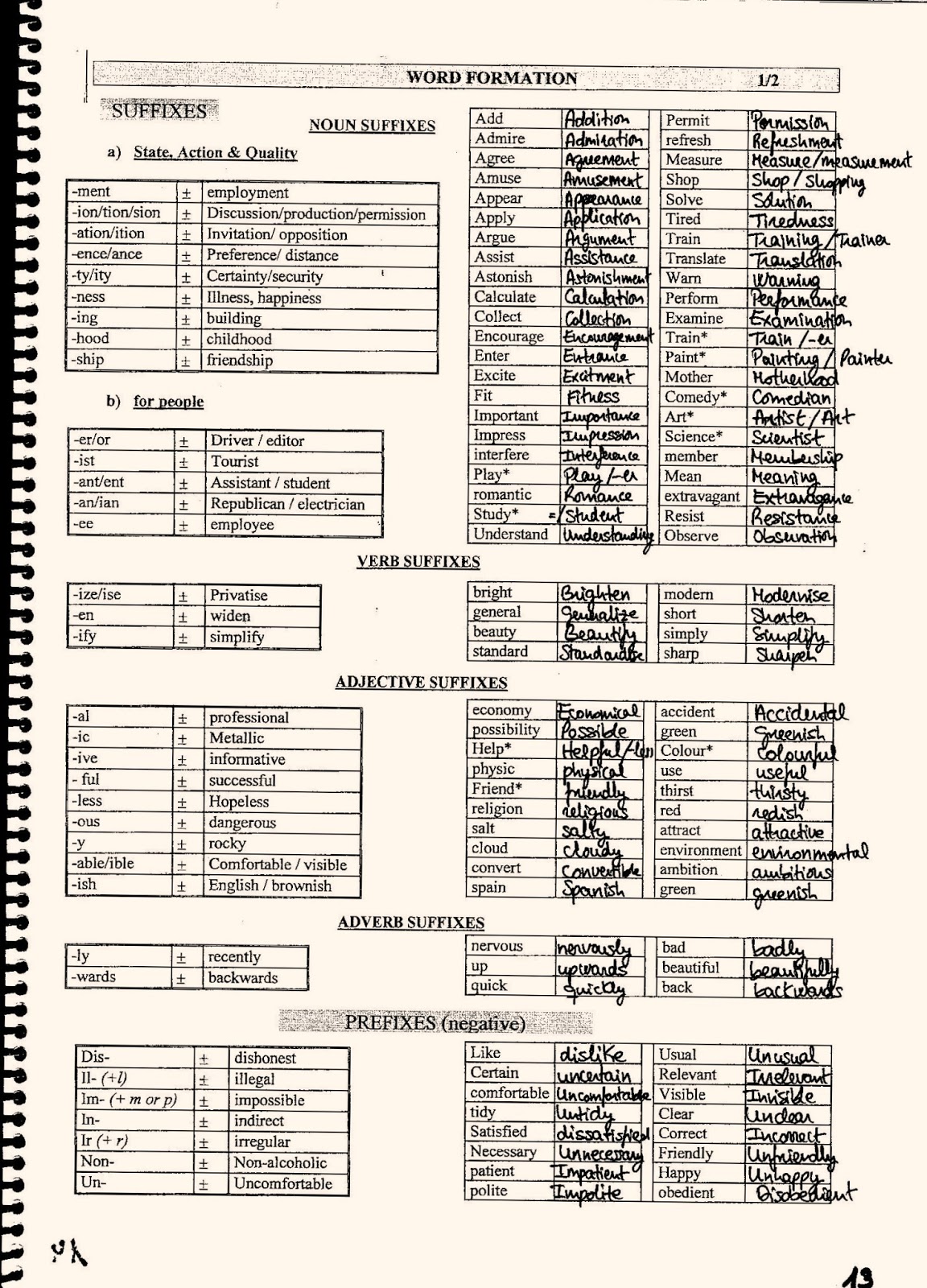Word formation
As word formation is referred to linguistic processes by which new complex words ( lexemes ) are generated on the basis of already existing linguistic resources. These linguistic devices can be simple and complex words, morphemes, affixes and joint elements. Word formation is next change of meaning and borrowing one of the main forms of vocabulary development. As such, there are methods of lexical innovation.
Word formation can be viewed from different angles. They can be from a diachronic or synchronic, from semasiological ( from form to meaning) or onomasiological ( from meaning to form ) as well as formal ( morphosyntactic ) or semantic perspective study. In addition to traditional, to the language system ( ' langue ') related issues crystallized present a more linguistic usage ( ' parole ') oriented research direction out ( cf. Elsen / Michel 2007 and 2011).
- 4.1 Main reasons
- 4.2 Specific reasons
- 4.3 Pragmatic reasons
- 4.4 Voice economy
- 4.5 expressivity and expressiveness
- 4.6 Subjective causes
Classification options
In general, word formation is according to the types of procedures (see below) classified that are in a particular language available to form new lexical forms. Alternatively, you can word formation also differ according to how far they conventionalized or how productive they are.
With regard to the conventionality of individual word formations, one can distinguish the following properties:
Each newly formed word occurs first on okkasionell. In the case of a newly formed Usualisierung word is usually reduced to one of its meanings. This process is called lexicalization. There are areas in which word formation and inflection overlap, as especially in the derivation. For example, Participles often occur usualisiert and are often viewed as derivatives, less than inflectional.
In terms of the productivity, there are two poles between which gradually distinctions are possible:
With these distinctions it comes from two different perspectives to conventionality. Firstly, there is the conventionality of individual word formation products that are used okkasionell or 'usual. On the other proceedings which are productive or unproductive. Both distinctions focus on the lexical perspective and connect the synchronic and diachronic perspective the. From the morphological and semantic perspective, the focus more on processes of classification experiments.
Process of word formation
The problem of Übereinzelsprachlichkeit
The process of word formation correspond to individual linguistic rules and conventions and must therefore be classified for each language specifically. In addition, however, the question arises, whether there is individual linguistic categories of word formation. In this context, beat Grzega (2002: 19) from onomasiological and Gévaudan (2007: 118ff. ) From a typological perspective, the following abstract and individual linguistic categories before:
- Grammatical (categorical ) Change lexical expressions (eg dt.Rennen ← German race )
- Extension of lexical expressions (eg ← dt dt daily day)
- Combination of lexical expressions (eg German doorstep ← dt dt door house )
- Reduction of lexical expressions (eg German Hame ← German maliciously )
Categories of word formation
This general method correspond to the following traditional categories of word formation:
- Conversion ( grammatical or Categorical change as Wortartwechsel without change of form )
- Derivation ( derivation by extension of a lexical expression with an affix )
- Composition ( composition or combination of lexical expressions)
Some work on word formation, such as Lipka (1990 ), assume that it is in the traditional category of the conversion is a derivation with a so-called " Nullaffix ". This is made with the analogy of training as Engl. ' clean ' clean- ø ( verb) ← Engl. clean ( adjective) ' clean ' and English. legal- ize ( verb) ' legalize ' ← Engl. legal ( adjective) ' legal ' reasons. The consequence of this assumption is that the category of conversion disappears and the affected cases of word formation are classified as derivative ions. Lipka speaks in this context of " zero- derivation ".
The traditionally received less attention on single linguistic category includes methods of reducing the
- Regression and the Affixwechsels
- Abbreviation ( Akronymie, Sigel Education )
- Ellipse
- Word stem reduction ( apheresis, apocope )
Some methods of word formation that are subordinate to the above categories are sometimes referred to as a separate method:
- Word crossing (also called a word blend, word merger, amalgamation or contamination). This is a specific form of the combination of lexical expressions (eg dt Better Westerner ← German alls dt Westerner ' Westerners ( Berlinerisch and eastern ) ').
- Even so-called formikonische words like bowlegs represent a unique variant of the combination of lexical expressions, in which a constituent of the compound word iconic refers to a particular property. The iconic representation is a semantic process that is added to the morphosyntactic process of word formation. It is striking that a single letter here as constituent of a compound word, ie as a ( meta-linguistic ) acts word ( cf. the phrase " they look like a O ', where O acts as a noun).
- Lehnwortbildung is the combination of word formation and borrowing (for example, make sense dt along the lines of English to make sense )
In Gévaudan (2007) it is shown that the morphosyntactic process of word-formation principle can also be combined with methods of semantic innovation and borrowing.
Word formation vs. lexical innovation
Definitely not in the area of word formation include the following methods of lexical innovation:
Units of word formation
The method of morphological word formation are affixation with suffixation, prefixation, infixing and Zirkumfigierung, the composition with its subgroups: pure composition ( Substantivkomposita and Adjective ) and the combined method of composition and suffixation.
As units of word formation, the linguistic elements that are used to form new words apply:
Causes of word formation
The expansion of the vocabulary requires the formation of words. The majority of all words generated by Word formation, rare borrowings or neologisms are found.
Reasons for the emergence of words can be varied nature.
The main reasons
- Designation need, i.e., the need to close gaps designation
- Need to create a new linguistic sign ( sewing machine, environmental protection)
- Voices cultural causes as the origin of word formation: ask - question, questioner, questioning, be, it, off, question, questionable, unquestionably
- Flexionslücken fill: snow - snow, coffee - coffee, parents - parent
- Create uniqueness: spring - bird feather, quill, Spring
Specific reasons
- To replace existing names and need to supplement.
Pragmatic reasons
- Change of foreign workers → → Foreign people with a migration background or retirement home → Feierabendheim → Retirement Home
Economy of language
First of all words of three or four syllables are often reduced if they are frequently used in the social environment or workplace.
- Family: John - John, Elizabeth - Lisi
- School: homework - Ufzgi, Computers - Compi
- Colloquially: Operating Room - Surgical, University of - College
Expressivity and expressiveness
- → clean squeaky clean, reactionary → arch-reactionary.
Subjective causes
- Targeted insertion in advertising: cuddly wool, super impact protection, mega clean.
- Effort to achieve a social re-evaluation: foreign workers vs.. Guest workers, cleaners vs. charwoman










